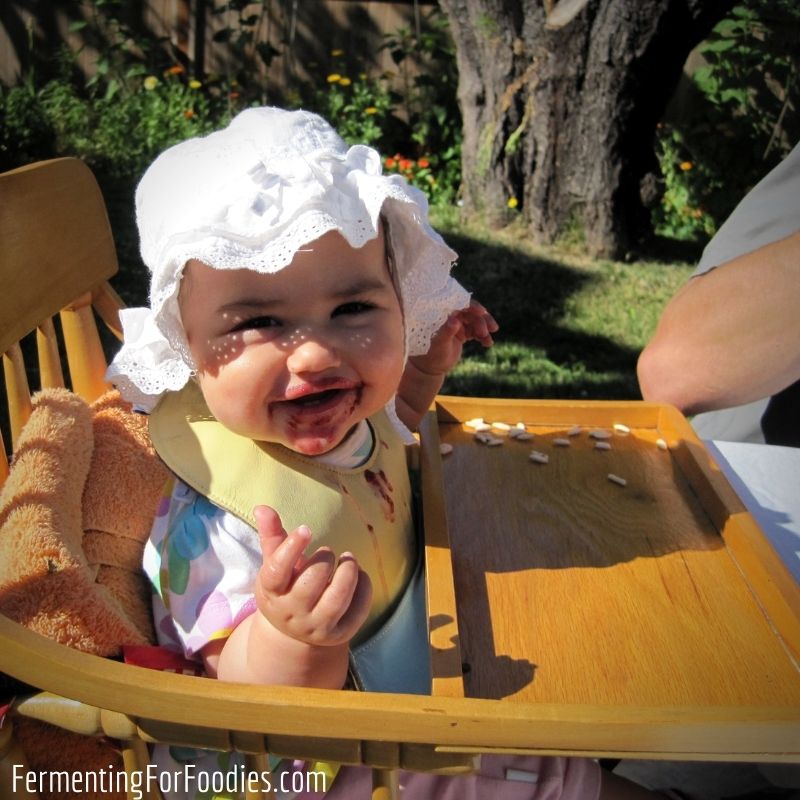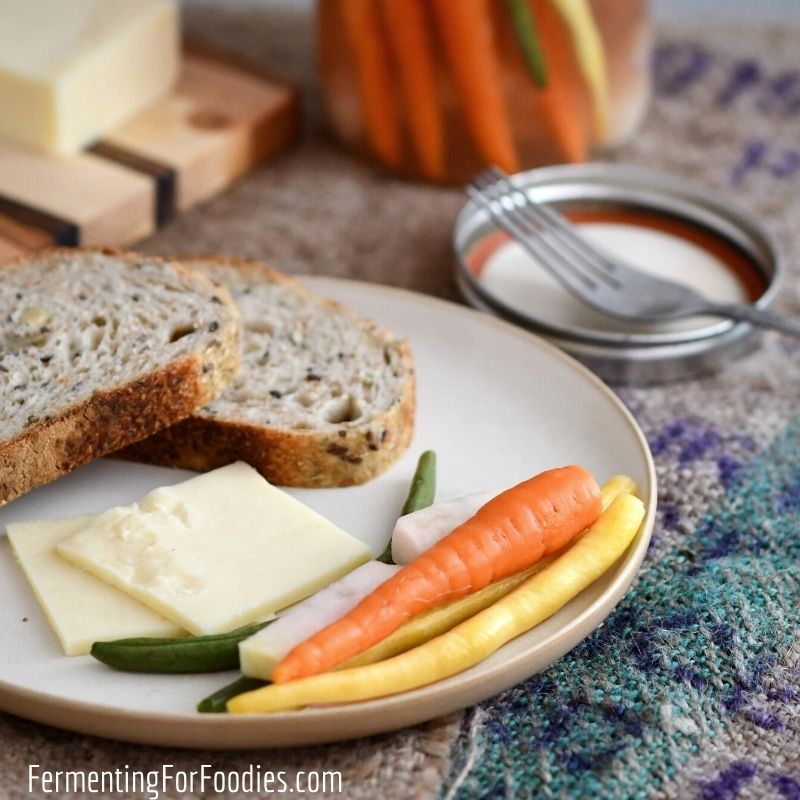Wondering what fermented foods are safe for babies? Here is everything you need to know about how to make sure your baby has a healthy gut and microbiome.

The diversity and complexity of a baby’s microbiome (all the yeasts, bacteria, and other microbes that inhabit our bodies) has lasting effects on their health and well-being, including the development of asthma and allergies. So probiotics and fermented foods are just as important for babies as they are for adults.
Here is some practical, age-based advice for making sure your baby has a healthy gut and microbiome.
Prenatal Probiotics
A baby’s first big introduction to probiotics comes from their mother, through birth, lying on their mother’s skin, and breastfeeding.
To make sure your infant has a good dose of probiotics right away, it’s best to start before birth. Everyone in the house will contribute to the baby’s first dose of bacteria and yeast. So it’s worth eating a diet that will help improve everyone’s microbiome.
Here are some fermented foods that are safe during pregnancy.
Infants
There are a number of probiotic supplements available for infants. These can include probiotic powder that can be mixed into formula and probiotic drops. While the viability of probiotic supplements is never guaranteed, in general probiotics are more likely to survive the harsh environment of the stomach if coupled with milk. So in that way, they’re perfect for babies!
Another way to make sure your infant is getting a good dose of probiotics is by making your own fermented foods. While they might not be ready for a forkful of sauerkraut or a slice of sourdough bread, they will benefit from the increase in wild yeast and bacterial culture in the air of your home.
Fermented Foods for Babies

First foods
There are lots of different philosophies when it comes to introducing foods to babies. I recommend following the latest government guidelines, which suggest:
- Avoiding commercial baby foods prepared with salt or sugar.
- Ensuring food is safely prepared and stored. (So no mold ferments, honey ferments, or unusual ferments).
- Including iron-rich foods and high nutrient value foods.
- Yogurt is probably the best fermented food to serve to 6-month-old babies. It has the right texture, familiar flavor and is packed full of nutrition.
- Try a few different brands of plain yogurt for different strains of bacterial culture. Or make your own for a guaranteed boost of probiotic culture.
Finger foods

It’s important to start introducing textured food to babies by nine months. Finger foods are perfect for encouraging self-feeding and will give caregivers a chance to sit down and eat at the same time.
This is a great time to introduce a variety of fermented foods:
- Fermented vegetables, in particular, carrot sticks are soft enough for babies to chew on.
- Dairy ferments, like cheese, yogurt, cultured buttermilk, and milk kefir are more easily digested than plain milk.
- Making sourdough bread not only improves the digestibility of complex carbohydrates but also increases the wild yeast and bacterial cultures in your home.
Avoid:
- Fermented beverages like kombucha and water kefir. They are acidic, sugary, and slightly alcoholic.
- Raw honey ferments because of the risk of botulism in the immature digestive system.
- Mould ferments also because of the risk to the immature digestive system.





Hey! I’ve been loving your blog and making so many of your recipes! I make your probiotic hummus (instead of water I actually use vegetable brine from a veggie ferment and use ACV too). Is that safe to feed my 9 month old?
I’m glad you enjoy the blog! I think fermented vegetables are fine for toddlers, so using the brine for a different ferment should be fine too! However, if you’re concerned, it’s also fine to wait until they are over 1 year old. Take care, Emillie 🙂